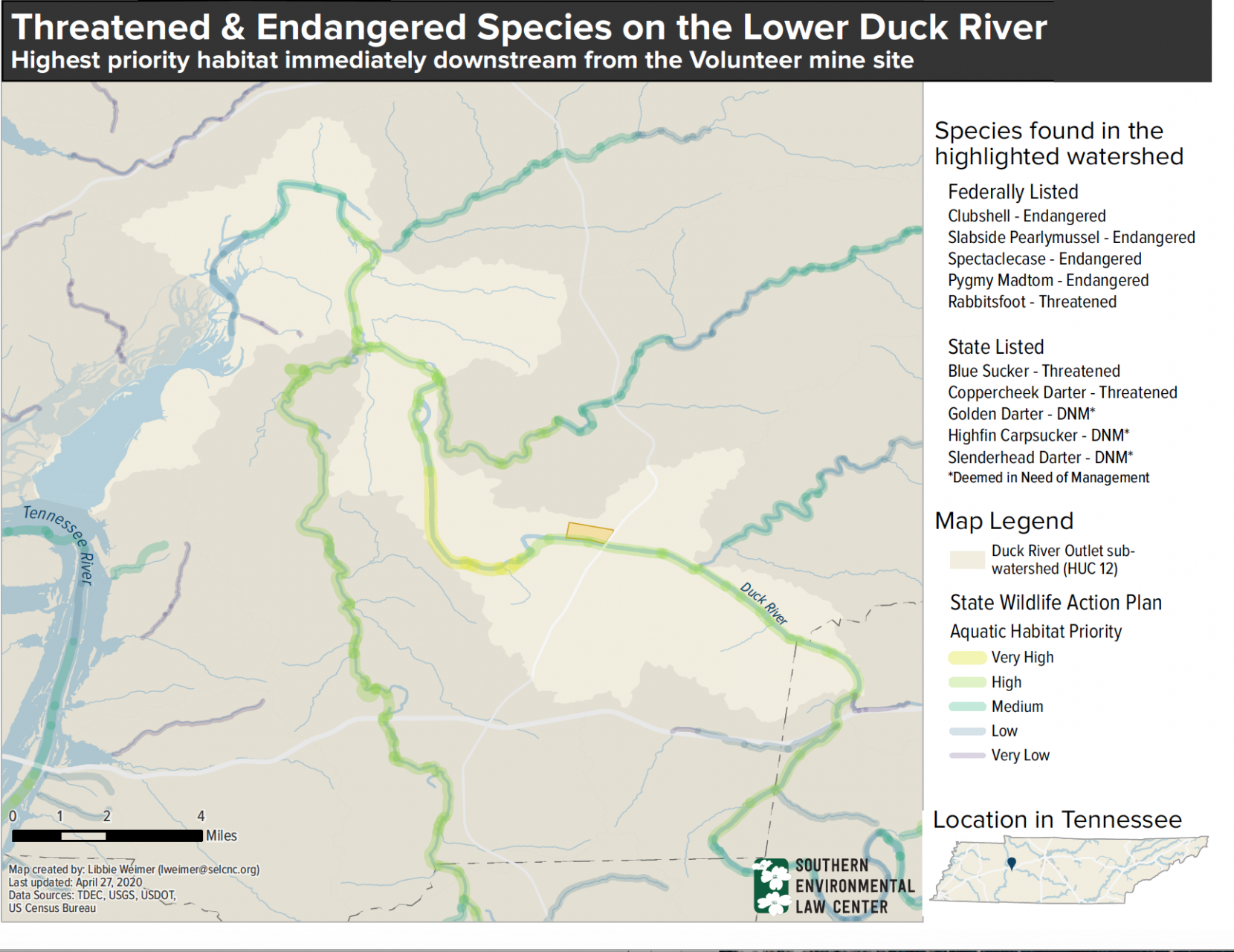Mine proposed on beloved Tennessee river and floodplain draws concern
Ask any Middle Tennessee paddler and she’ll tell you that the Duck River is a special place to kayak or canoe. The Duck is blessed with an incredible array of fish and mussel species, which in turn attract other wildlife. Unfortunately, as Tennessee faces more frequent severe storms, flooding along the Duck has increased. Now, a sand and gravel mine proposed on a floodplain could put this biodiverse stretch of river at risk by causing significant sedimentation when it floods.
SELC and its partners are asking the Tennessee Department of Environment and Conservation to revise a draft permit to account for the flood-related discharges that will occur as a result of the project, and to ensure compliance with the state’s water quality standards.
“Volunteer Sand & Gravel plans to place a mine pit in a floodplain on the banks of the Duck River, posing a serious threat to one of Tennessee’s most beloved rivers,” says Amanda Garcia, managing attorney of SELC’s Tennessee office. “With at least 147 species of fish, 54 freshwater mussel species, and 22 freshwater snail species, the Duck may be the most biologically diverse river in North America.”
Volunteer Sand & Gravel plans to place a mine pit in a floodplain on the banks of the Duck River, posing a serious threat to one of Tennessee’s most beloved rivers. With at least 147 species of fish, 54 freshwater mussel species, and 22 freshwater snail species, the Duck may be the most biologically diverse river in North America.
Amanda Garcia, Managing Attorney of SELC’s Tennessee office
In a letter submitted last week, Garcia urged that once flood-related discharges are taken into account, the Department of Environment and Conservation should require Volunteer Sand & Gravel to look into appropriate alternatives, plus undergo an economic and social analysis.
Flooding is a major concern at the site, and several endangered species will further be put at risk if the project is allowed to proceed.
The stretch of the Duck River adjacent to the proposed mine has been designated as Exceptional Tennessee Waters because it is critical habitat for the Purple Bean and Cumberlandian Combshell, two mussels that are federally listed as endangered.
Water pollution harms endangered species, and likewise, habitat loss and alteration—often due to siltation and water pollution—are the primary causes of the Purple Bean’s decline.
“All of this incredible biodiversity is at risk because the entire mine site lies within the floodplain,” says the attorney. “Just since 2017, the area has flooded 27 times. With decreasing permeable surface due to nearby land use and increasingly severe and frequent storms due to climate change, this flooding will only get worse.”
A May 2010 flood devastated the entire Lower Duck River Basin, and the 5.6 feet of water brought by Hurricane Mills in 1975 may have been the hardest hit yet.
The bottom line is that with so many threatened or endangered species likely to suffer from water pollution and sedimentation, the planned sand and gravel mine presents a real, imminent threat to Tennessee’s unique and irreplaceable natural resources.
Other arguments SELC and its partners outlined in their letter prove that the draft permit is unlawful and deficient in several ways. Read the full letter here.
Attorneys will be closely monitoring the case.

